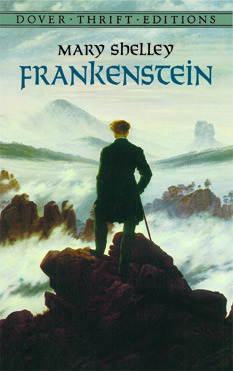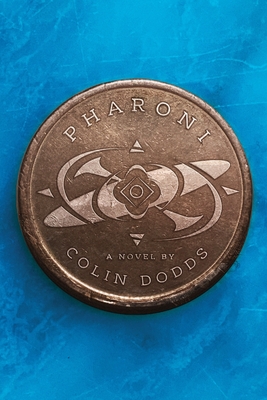 Her
name is Binti, and she is the first of the Himba people ever to be offered a place at Oomza
University, the finest institution of higher learning in the galaxy. But to accept the offer
will mean giving up her place in her family to travel between the stars among strangers who
do not share her ways or respect her customs.
Her
name is Binti, and she is the first of the Himba people ever to be offered a place at Oomza
University, the finest institution of higher learning in the galaxy. But to accept the offer
will mean giving up her place in her family to travel between the stars among strangers who
do not share her ways or respect her customs.
Knowledge comes at a cost, one that Binti is willing to pay, but her journey will not be easy.
The world she seeks to enter has long warred with the Meduse, an alien race that has become
the stuff of nightmares. Oomza University has wronged the Meduse, and Binti's stellar travel
will bring her within their deadly reach.
If Binti hopes to survive the legacy of a war not of her making, she will need both the the
gifts of her people and the wisdom enshrined within the University, itself—but first
she has to make it there, alive.
I found a copy of this book in a little used bookstore up on the Cape this summer. Recalling
that it had won several awards, and only being a novella in length, I picked it up.
We follow 16-year-old Binti as she steals away in the night to embark on a trip to Oomza
University. Instead of being proud of Binti's acceptance at such a prestigious university,
her family forbids her to go. They say that Binti's place, like all
Himba, is at home with family.
The narration and theme makes this seem like either middle grade or young adult fare,
but I can still appreciate it.
As Binti makes her way to the spaceport, she has to deal with the
Khoush, fellow
humans of an unknown ethnicity. They scrutinize Binti's appearance as if she were an
insect under a magnifying glass with all the poise of middle school biology class.
“It smells like jasmine flowers,” she said to the woman on her
left, surprised.
“No shit?” one woman said. “I hear it smells like shit because it is shit.”
“No, definitely jasmine flowers. It is thick like shit, though.”
“Is her hair even real?” another woman asked the woman rubbing her fingers.
“I don’t know.”
“These ‘dirt bathers’ are a filthy people,” the first woman muttered.
On the trip to Oomza University, Binti gradually makes inroads with her fellow
students, apparently all Khoush. I thought that the story was going to be about
Binti winning over her fellow students, but instead, the plot takes a sharp turn. A
Meduse boarding party arrives out of nowhere—it's never explained how—and
mercilessly attacks the passengers. Her survival appears to be a bit of
deus ex
machina, but the story would be over if she died right there.
I was hoping that Okarafor was going to have Binti rally her fellow Khoush students
to repel the invaders, but no. Everyone was killed, all 500 passengers, except Binti
and the never-seen pilot. So then I was hoping Binti was going to use her wits to
work with the pilot to repel the invaders. Nope. Instead, Binti parleys with the
Medusae, in particular one named Okwu, in an effort to think of a way out of this mess.
While I enjoyed learning about this future version of the Himba, I'm left wondering
why a people who never travel have a need for an
astrolabe, much less build
them. But it's clear from the text that Okorafor has changed the definition of the
device to be something much more.
Who are the Khoush? Initially, they were described as being lighter in skin color
than Binti, but towards the end of the story, she encounters a dark-skinned Khoush.
It's said at one point that the Himba don't like outsiders. Since no other types
of humans are mentioned in the story, does that mean that everyone who isn't Himba
is a Khoush to these isolationist xenophobes? The adult Khoush certainly have
their attitude issues, the younger ones are more curious and open to new ideas
than their parents, but we never see how the Himba act toward them. Might the
rudeness of adults go both ways?
Another thing that nagged at me was Biniti's response to landing on Oomza. I was
given the impression that there was artificial gravity on the spaceship. At no
point is anyone or anything just floating about. But when the ship lands, she
falls to the floor upon encountering the planet's gravity. The world is described
as "a small planet compared to Earth" so smaller size means less mass (unless the
world's density is somehow greater than your typical terrestrial world) which
means less gravity. An editor should've caught that.
While I won't spoil the ending, I have to say that I find it troubling.
If you want a spoiler, highlight this next section of text.——>
The Medusae are angry at the university because they stole
the chief's stinger. How this was accomplished is never explained. The chief is
fine by the way. He just feels emasculated. Regardless, this is the Medusae's
justification for killing all of the students on the spaceship. It's a matter of
honor, never mind that the students had nothing to do with it, nor knowledge of
it. After some debate, the university agrees to give the stinger back and
they give the Medusae named Okwu what amounts to a full scholarship at the
university. No demands from the university to atone for the 500 dead students,
nor are there complaints from the crowd in attendance. No apologies or remorse
from the Medusae; they leave completely satisfied. The terrorists win.
On top of this, Okwu and Binti become friends despite the fact that she witnessed it
kill a fellow student right in front of her, splattering blood on her face, and it
was going to kill her, too, were it not for her magic pet rock. Does Binti have
Stockholm Syndrome? She does care that these people, although they were Khoush,
were brutally slaughtered, right? We're given a sentence or two where she's upset by
what happened, but the narrative's focus is on Binti making a fresh batch of otjize.
Yes, I get that it's her cultural tie with home, but I wish more had been written
about Binti dealing with her traumatic experience instead of just focusing on her
being homesick.
I've learned that Binti's PTSD for this experience is addressed in Sacred Fire,
a short story that was written after the series concluded and inserted into a
special trilogy collection, officially book 1.5 in the series. The cynic
in me says, "Damage control."
Overall, I enjoyed Okarafor's world-building and learning about these future Himba,
even though Binti seemed a bit obsessed with her
otjize. Setting aside my
nitpicking over some details and the childish behavior of the Medusae, I would've
been fine with the story, but that ending ruined it for me.
2 stars
\_/
DED
 Lee's
best friend went missing on Bodmin Moor, four years ago. She and Mal were chasing rumours of monsters when they
found something all too real. Now Mal is back, but where has she been, and who is she working for?
Lee's
best friend went missing on Bodmin Moor, four years ago. She and Mal were chasing rumours of monsters when they
found something all too real. Now Mal is back, but where has she been, and who is she working for?
 At
once a Gothic thriller, a passionate romance, and a cautionary tale about the dangers of science,
Frankenstein tells the story of committed science student Victor Frankenstein. Obsessed with
discovering the cause of generation and life and bestowing animation upon lifeless matter,
Frankenstein assembles a human being from stolen body parts but; upon bringing it to life,
he recoils in horror at the creature's hideousness. Tormented by isolation and loneliness,
the once-innocent creature turns to evil and unleashes a campaign of murderous revenge
against his creator, Frankenstein.
At
once a Gothic thriller, a passionate romance, and a cautionary tale about the dangers of science,
Frankenstein tells the story of committed science student Victor Frankenstein. Obsessed with
discovering the cause of generation and life and bestowing animation upon lifeless matter,
Frankenstein assembles a human being from stolen body parts but; upon bringing it to life,
he recoils in horror at the creature's hideousness. Tormented by isolation and loneliness,
the once-innocent creature turns to evil and unleashes a campaign of murderous revenge
against his creator, Frankenstein.
 When
the body of Harry Injurides - playwright, provocateur and bodybuilder - washes up on a beach, his
friends are shocked, but not altogether surprised. But when they meet to mourn Harry, he shows up
and says he's been resurrected.
When
the body of Harry Injurides - playwright, provocateur and bodybuilder - washes up on a beach, his
friends are shocked, but not altogether surprised. But when they meet to mourn Harry, he shows up
and says he's been resurrected.
 How
do you stage a mutiny when you're only awake one day in a million? How do you conspire when your tiny handful of
potential allies changes with each job shift? How do you engage an enemy that never sleeps, that sees through
your eyes and hears through your ears, and relentlessly, honestly, only wants what's best for you? Trapped
aboard the starship Eriophora, Sunday Ahzmundin is about to discover the components of any
successful revolution: conspiracy, code—and unavoidable casualties.
How
do you stage a mutiny when you're only awake one day in a million? How do you conspire when your tiny handful of
potential allies changes with each job shift? How do you engage an enemy that never sleeps, that sees through
your eyes and hears through your ears, and relentlessly, honestly, only wants what's best for you? Trapped
aboard the starship Eriophora, Sunday Ahzmundin is about to discover the components of any
successful revolution: conspiracy, code—and unavoidable casualties.
 Five
years ago, the Rebel Alliance destroyed the Death Star, defeated Darth Vader and the Emperor, and drove the
remnants of the old Imperial Starfleet to a distant corner of the galaxy. Princess Leia and Han Solo are
married and expecting twins. And Luke Skywalker has become the first in a long-awaited line of Jedi Knights.
Five
years ago, the Rebel Alliance destroyed the Death Star, defeated Darth Vader and the Emperor, and drove the
remnants of the old Imperial Starfleet to a distant corner of the galaxy. Princess Leia and Han Solo are
married and expecting twins. And Luke Skywalker has become the first in a long-awaited line of Jedi Knights.
 Johnny
Truant gets a call in the middle of the night from his friend Lude. Apparently, this weird old guy
(Zampanò) died in his apartment building, and the landlord left the door unlocked for Goodwill
to come and clean the place out the next morning. Johnny heads over and the two of them find this
manuscript in a trunk. The manuscript is an analysis of a documentary, The Navidson Record.
Skimming through it, Johnny notices that it is annotated with footnotes referencing other people who
have either analyzed the film or interviewed the people who took part in it. The film concerns a
house that is larger on the inside than the outside. Curious, Johnny takes it home with him.
Johnny
Truant gets a call in the middle of the night from his friend Lude. Apparently, this weird old guy
(Zampanò) died in his apartment building, and the landlord left the door unlocked for Goodwill
to come and clean the place out the next morning. Johnny heads over and the two of them find this
manuscript in a trunk. The manuscript is an analysis of a documentary, The Navidson Record.
Skimming through it, Johnny notices that it is annotated with footnotes referencing other people who
have either analyzed the film or interviewed the people who took part in it. The film concerns a
house that is larger on the inside than the outside. Curious, Johnny takes it home with him.
 Six
months have passed since the events of The Silver Mask. Over the winter months, Vasini was plagued by
Gareth Miller, the Winter Fayre Killer, who murdered 17 people before he was captured by Lieutenant David
Locke. The city now waits for Miller to be hanged. But when Miller escapes gaol, ready to terrorise
Vasini's streets once more, Locke must hunt the murderer again to stop him from claiming more lives.
Six
months have passed since the events of The Silver Mask. Over the winter months, Vasini was plagued by
Gareth Miller, the Winter Fayre Killer, who murdered 17 people before he was captured by Lieutenant David
Locke. The city now waits for Miller to be hanged. But when Miller escapes gaol, ready to terrorise
Vasini's streets once more, Locke must hunt the murderer again to stop him from claiming more lives.
 I
stumbled across
I
stumbled across
 The
Executives control Oichi's senses, her voice, her life. Until the day they kill her.
The
Executives control Oichi's senses, her voice, her life. Until the day they kill her.
 The
Church of Armes of the Light has battled the forces of Darkness for as long as anyone can remember.
The great prophecy has foretold that a band of misfits, led by a high priestess will defeat the
Dark Lord Darvezian, armed with their wits, the blessing of the Light and an artifact stolen
from the merciless Spider Queen.
The
Church of Armes of the Light has battled the forces of Darkness for as long as anyone can remember.
The great prophecy has foretold that a band of misfits, led by a high priestess will defeat the
Dark Lord Darvezian, armed with their wits, the blessing of the Light and an artifact stolen
from the merciless Spider Queen.
 Jaybee Corbell awoke after more than 200
years as a corpsicle—in someone else's body, and under sentence of instant
annihilation if he made a wrong move while they were training him for a one-way mission
to the stars.
Jaybee Corbell awoke after more than 200
years as a corpsicle—in someone else's body, and under sentence of instant
annihilation if he made a wrong move while they were training him for a one-way mission
to the stars.
 I don't think that it's controversial
to say that too much food gets wasted around the world. Scientific American
published an article in their October 2021 issue whereupon it was stated that "40%
of food produced is lost across the supply chain from farm to table." At the current
pace of population growth and economic development, the world will need to
convert an area the size of India to farmland over the next thirty years to keep up
with demand, and this was before
I don't think that it's controversial
to say that too much food gets wasted around the world. Scientific American
published an article in their October 2021 issue whereupon it was stated that "40%
of food produced is lost across the supply chain from farm to table." At the current
pace of population growth and economic development, the world will need to
convert an area the size of India to farmland over the next thirty years to keep up
with demand, and this was before
 So this was my first attempt to re-grow
some lettuce shortly after finishing this book. It got off to a good start
but then some aphid-like bugs found it and ate it from inside out, leaving
behind a sticky residue. Kinda bummed about that.
So this was my first attempt to re-grow
some lettuce shortly after finishing this book. It got off to a good start
but then some aphid-like bugs found it and ate it from inside out, leaving
behind a sticky residue. Kinda bummed about that.
 Cairo, 1912: The case
started as a simple one for the Ministry of Alchemy, Enchantments and Supernatural
Entities — handling a possessed tram car.
Cairo, 1912: The case
started as a simple one for the Ministry of Alchemy, Enchantments and Supernatural
Entities — handling a possessed tram car.
 Book
six in The Expanse series. If you haven't read book five, some of this
review might be spoilerish.
Book
six in The Expanse series. If you haven't read book five, some of this
review might be spoilerish.
 I
read an excerpt of this in Wired magazine and was intrigued. It helped that the
authors are
I
read an excerpt of this in Wired magazine and was intrigued. It helped that the
authors are  Her
name is Binti, and she is the first of the Himba people ever to be offered a place at Oomza
University, the finest institution of higher learning in the galaxy. But to accept the offer
will mean giving up her place in her family to travel between the stars among strangers who
do not share her ways or respect her customs.
Her
name is Binti, and she is the first of the Himba people ever to be offered a place at Oomza
University, the finest institution of higher learning in the galaxy. But to accept the offer
will mean giving up her place in her family to travel between the stars among strangers who
do not share her ways or respect her customs.